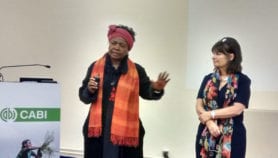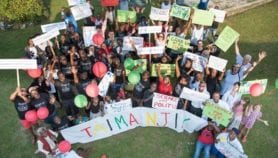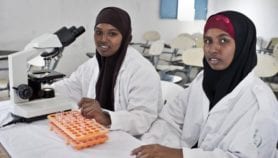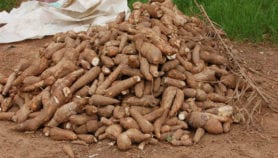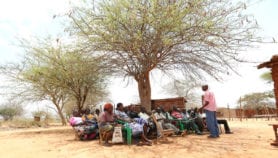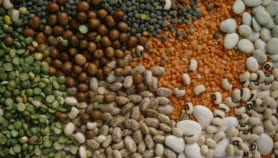By: K. S. Jayaraman
Send to a friend
The details you provide on this page will not be used to send unsolicited email, and will not be sold to a 3rd party. See privacy policy.
Declining support from Western governments has forced the International Crops Research Institute for Semi-Arid Tropics (ICRISAT) to cut staff and redefine its research strategy in order to attract new funding, particularly from private companies.
About 205 employees, a figure that includes more than a dozen foreign and Indian researchers and represents about one quarter of the overall staff, have been made redundant over the last few months. As a result, the number of staff has now fallen to about 600, the lowest since the institute was set up in 1972.
ICRISAT is one of 16 institutes around the world run by the Consultative Group on International Agricultural Research, and the only international agricultural institute.
Its director general, William Dar, said last week that funds from the governments that have been the institute’s traditional supporters have begun to decline. Japan’s contribution in particular is believed to have been cut back.
Although the impact of the global economic slowdown is being cited as one of the main reason for these cuts, there is also said to be declining support for ICRISAT’s core research. Changing agricultural research priorities, with greater emphasis on biotechnology and transgenics, is also thought to be a factor.
The institute had about 50 traditional donor countries and organisations. This year’s budget of US$22.3 million is US$1.5 million lower than last year, and “we had no option but to streamline the functioning,” says Dar.
Dar says that he is now looking for funding from non-traditional sources, including individuals, foundations and organisations, as well as corporate sponsors.
Until now, ICRISAT has been restricted to research on crops such as millet, groundnut, chick pea and sorghum that are important to those living in arid regions of Africa and India. While this work will continue, ICRISAT is diversifying into improvement of cash crops, livestock rearing, biotechnology and transgenic crops — areas that may attract new sponsors.
The institute’s efforts to find new donors are bearing fruit, says spokesman Murli Sharma. ProAgro Seeds, a private company, has already contributed US$300,000 to the institute for a three-year sponsored project on pearl millets.
Furthermore, the state government of Andhra Pradesh has agreed to give ICRISAT US$50,000 of aid money it is receiving from the UK’s Department for International Development.
According to Dar, ICRISAT will also get a share in the US$16 million earmarked by the Global Environmental Facility for a five-year research project on a “desert margin initiative” in Sub-Saharan Africa.
More on Networks

Script media release
Journalists offered ‘big break’ mentoring opportunity from Radio Nigeria
03/04/19





